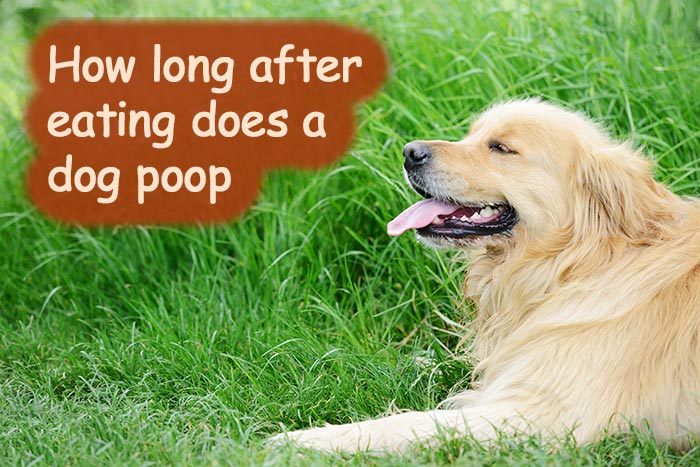I remember wondering just how long it would take my dog to poop what they ate. I wanted to schedule my blogging and the time I needed to take my dog out to poop, instead of being disturbed right in the middle of a creative spurt. So I did some research. This is what I found out.
How long after eating does a dog poop? Dogs need around 7 hours before they can poop after eating. Food needs around 6 to 8 hours to pass through a dog’s digestive system. Puppies need only about 4 hours since they are smaller.
In general, the larger the meal and the more fibrous the food, the longer it will take for your dog to digest it. For example, a large bone will take longer to digest than a small one.
All dogs digest food differently, depending on their diet and activity level. The time it takes for a dog to poop depends on the size of the dog’s bowel, how much water they drank, what kind of diet they have, and whether or not they were active before or after eating.
How long does it take for a dog to digest food and poop it out?
It takes an average dog about 12-15 hours to digest food and excrete it in poop. A dog’s stomach is essentially a lavishly-sized digestive tract with a lot of muscle and acid, which means that the speed of digestion depends on how much water is in the food.
Factors That Influence Digestion Time.
Digestion times vary from dog to dog, according to factors such as:
Age
A puppy has a faster metabolism than an older dog.
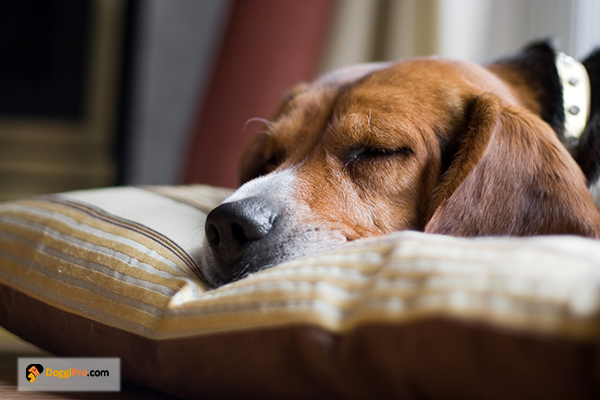
Feeding frequency
Most dogs digest two meals comfortably. A twice-daily feeding will slow the dog’s digestion down because food that has not digested passes into the lower intestine and ferments due to the longer transit time. Increased frequency can cause constipation, as waste material can build up in the colon.
The state of health and physical activity
These 2 are major factors, whether a show dog, working dog, or pet. A show dog will have a slower metabolism, and digestion will be more drawn out and steady than a working dog or pet.
An older dog will digest slower, while an inactive one may find its digestion intermittent and uneven.
The character of some dogs also plays a part.
Some dogs are impatient with their meals or gluttonous or spoiled, while others eat their food slowly and leave their food down for hours at a time.
Some breeds are known for their fast metabolism and swift digestion, such as Greyhounds and Whippets, or slow, steady digestion, such as Bulldogs or Pugs.
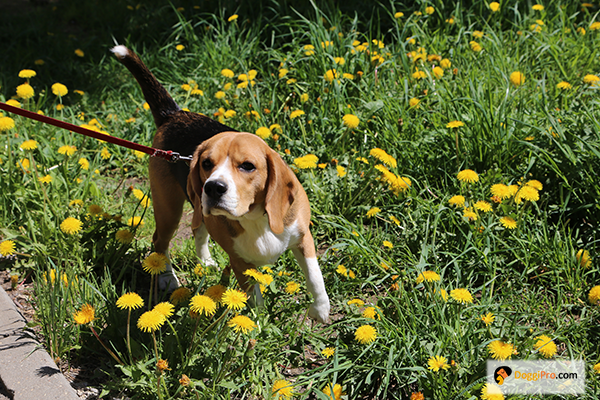
Why Do Dogs Poop After Meals?
There are a few theories as to why dogs poop after meals. One idea is that dogs need to poop after eating because their food goes through their system too quickly without enough time to digest. Other theories are that dogs have an increased need to poop after eating because they are being fed table scraps or a high need to eliminate waste in the event of diarrhea.
In reality, there are only two reasons why dogs poop after meals – because their internal organs need to expel a liquid or because they have an imbalance in their gut bacteria.
Dogs digest their food quickly, so their stomach releases acid to break down the food. Once the acids break down the food, they mix with other digestive fluids and create a liquid that’s ready to be excreted.
This liquid travels to the colon, which mixes with bacteria that take nutrients from it. This liquid is full of water and has lost all its nutrients.
Do dogs poop after every meal?
Dogs do not poop after every meal. They only poop when they eat something that makes them need to poop. When a dog eats something that does not require any digestion, such as just a carrot, the food will go into the stomach and then into the intestines and then out of their body. If the dog ate something that required some digestion, such as a piece of meat or cheese, then it will pass through their digestive tract as normal.
If your dog’s diet consists mainly of high-fiber foods, it may be less likely for them to have a bowel movement immediately after eating. If your dog is on a low-fiber diet or consuming foods with ingredients that are known to cause diarrhea, you should not expect the dog to go soon after having this food.
How long can dogs hold their poop and pee?
Dogs can hold their poop for about 1-2 hours most of the time. The longest I’ve seen a dog hold their poop is about 8 hours. It’s not uncommon for dogs to keep their poop and pee for 4-6 hours.
If your dog tends to hold their poop a long time, you might want to consider feeding them a high-quality food like Blue Buffalo Wilderness with a high protein level and low fiber content, so the food will help stimulate their digestive system to produce more poop.
They can hold their pee for even longer. I’ve seen dogs that can hold their pee for up to 12-16 hours before leaking. Keep in mind that if your dog can hold their pee for a long time, this doesn’t mean that your dog is healthy. Certain health issues can cause dogs to keep their pee for a long time.
For example, if your dog has a urinary tract infection, they may hold their pee for a long time. If your dog has a urinary tract infection, it’s a good idea to have the vet check your dog.
It’s also a good idea to take your dog to the vet if they hold their pee a long time to be on the safe side. In addition to the above, here’s some more information on urinary tract infections and how they affect your dog.
Do dogs need to poop after a walk?
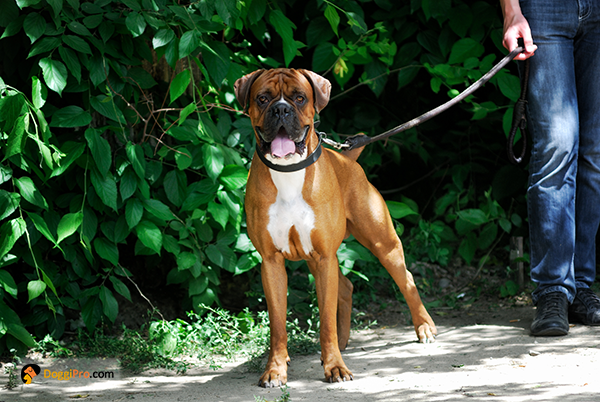
A walk is a great way to get some of your dog’s energy out. But, do dogs poop after a walk? Well, not always. Many dog owners have asked themselves this question.
The general rule of thumb depends on the length of the walk and what the dog ate before the walk. A walk can be in the form of a walk in the neighborhood, a hike in the woods, a day at the dog park, or a walk around the block.
If a dog goes on a short walk, say around the block, they can hold their poop for about 15 minutes. If a dog goes on a long walk, like a hike in the woods or a walk at the dog park all day, they can easily hold their poop for up to 2 hours.
If a dog eats a meal that contains a lot of fiber, it makes them want to poop. Therefore, a dog will poop after a walk if it just ate dinner. However, if a dog goes on a walk right after eating, sometimes the dog will poop right away. But, after a while, the food will go through their system, and they will not feel the need to poop. Therefore, if your dog ate a meal before a walk, pooping is a certainty after a walk, but it may not be right away.
If a dog drinks a lot of water right before a walk, they are more likely to poop right away because they are more likely to pee on the walk. Dogs don’t pee and poop at the same time.
Therefore, your dog will pee for a walk and then poop after. As long as your dog drinks water before a walk, your dog will poop after a walk.
Getting Your Dog to Poop
I know it can be challenging for some first-time pet owners, but the real secret to this is doing consistency. You keep doing the same thing to help your dog form habits.
Tips to help your dog poop regularly.
- Buy food that suits your dog’s dietary needs and feeding habits.
- Designate a place for your dog to go poop, such as in an outdoor space or on a designated spot outside the house.
- Watch your dog for signs of discomfort and illness. If you notice that your dog is getting sick or is in pain, it’s important to take it to the vet.
- Make sure that your dog is properly hydrated. A dog’s primary source of hydration is water, and you should make sure that your dog is getting enough water.
- Monitor your dog’s diet. If your dog doesn’t eat its food, it might be suffering from an illness or poisoning. If you notice that your dog isn’t eating, it’s important to take it to the vet as soon as possible.
- Take your dog for regular walks and ensure that it gets enough exercise. Exercise helps your dog be healthy, and it also helps your dog go poop.
- Clean up and collect your dog’s poop. It is important to manage your dog’s poop because it can give you and the vet a lot of information about what your dog is eating and what illnesses it might have.
What if They Didn’t Poop?
If your pet is not popping, it could be because they are constipated or have a bowel obstruction. Other possible causes could be too full, having kidney disease, being in pain, or are experiencing an intestinal blockage.
If your dog doesn’t poop, the first thing you should do is look at your dog’s diet. It might be that your dog needs more fiber in its diet. You should also stop giving your dog treats for a couple of days and feed them more vegetables or healthy snacks instead.
Not pooping for an extended period is an indicator of a visit to the vet.
Digestibility
There are a few natural ways to help your dog digest their food better. Adding a digestive enzyme to their meal is a good start. Another way is to feed them ground-up vegetables to help them get more roughage in the diet.
Many people mistake feeding their dog kibble and treat without giving them any vegetables or meat.
Feeding dogs the wrong type of food can lead to a digestive system that lacks the necessary enzymes to do its job well, resulting in various stomach issues like diarrhea, constipation, and gas.
The most important thing to remember when it comes to your dog’s diet is to feed them what they are biologically designed to eat. Dogs are carnivores and are meant to eat meat.
Dogs have a very short digestive tract, which is why they need to eat so often. It takes them a lot less time to digest their food than it does for humans.
Dogs are not meant to digest a lot of carbohydrates. Dogs eat meat, not grains. When you are feeding a dog a bag of kibble, you are providing them with many grains and fillers. Grains and fillers can cause various health problems, including kidney disease and cancer. The dog’s ancestors were designed to eat meat, so feed them meat.
Another thing to consider is that dogs should not eat grains. Eating grains can be fatal for your dog. Grain is a common ingredient in many dog foods. It is the filler that keeps the food inexpensive. Grain is a cheap substitute for meat, and it is not good for your dog.
The problem is that dogs do not have the necessary enzymes to break down the carbohydrates in grains. A dog’s body uses different enzymes than we do to digest our food. When dogs eat corn, wheat, rice, and other grains, it is unchanged through their short digestive tract. Feeding your dog grains leads to gas, bloating, and other digestive issues. Not only can eating grains be very unhealthy for dogs, but it can also kill them.
Dogs are also not meant to eat dairy products. There is no reason to feed your dog cow’s milk. There is no protein in it, they cannot digest it, and they will get sick. Please don’t feed your dog anything that they are not biologically designed to eat. Dogs need protein, and they need it in raw meat.
When you feed your dog the right diet, you ensure that they have a long, healthy life.
Dog Constipation
Dogs are known to have stomach issues, which can embarrass their owners. Dog constipation is one of these common problems. The stool gets stuck in the anal sphincter and cannot pass through, leading to hard or dry poop.
There are many causes of dog constipation, but the most common ones are food-related. It is important to focus on your pet’s diet and how it affects them. Some dog food brands contain ingredients that cause constipation, so it is essential to find the best food for your dog. One of the primary causes of dog constipation is a lack of water. It can be difficult for dogs to drink enough water, especially if they are not used to it. Make sure your dog has a water bowl and can easily reach it.
Alternative therapy is a popular option when dealing with dog constipation. The most common are acupuncture, massages, and chiropractic therapy. These methods are not only safe and effective but also cost-effective. Alternatively, you can try to give your dog a dog water bottle.
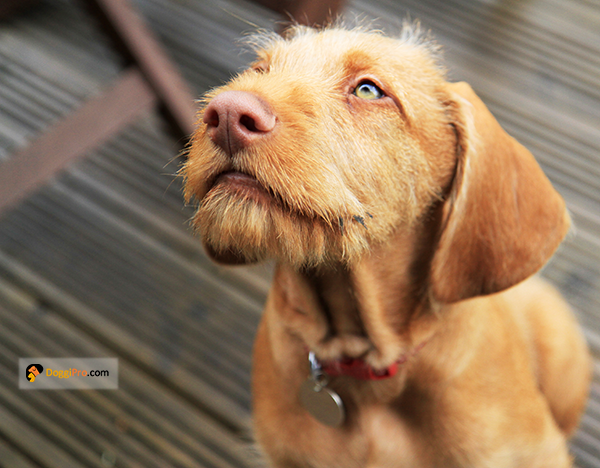
Treatment for Dog Constipation
-
Water
Water is the first and most fundamental dietary supplement you should give your dog. Lack of water can lead to constipation. The dog’s body is around 75% water, and it is needed to regulate the body temperature. Water allows the food to digest correctly and helps prevent constipation and other stomach issues. Water also helps the digestive system to break down food. It is important to give your dog about 8 ounces of water per pound of their weight. -
Probiotics
Dogs can get probiotics from food or supplements. Probiotics are beneficial bacteria that help the body regulate its functions. They can help the digestive system to absorb nutrients and break down food. Yogurt has probiotics, so it is a great food to give to dogs suffering from constipation. -
Flaxseed Oil
Flaxseed is an excellent source of fiber and omega 3, which can help your dog’s digestive system. Placing a teaspoon of flaxseed oil on your dog’s food can help with constipation. The best part is that flaxseed contains healthy fats, good for your dog’s skin and coat. -
Yogurt
Yogurt contains probiotics that can help your dog’s digestive system. It is a great food for dogs that suffer from constipation, as it can help them digest food easily. -
Magnesium
Magnesium is an essential mineral that all dogs need. It helps the body to stay healthy and regulate its functions. Dogs that suffer from constipation can benefit from magnesium. You can give your dog a mineral supplement that contains magnesium. Make sure that it is a high-quality supplement, as some brands have low-quality ingredients. -
Massage And Chiropractic Therapy
Massaging and chiropractic therapy can help your dog’s digestive system function properly. Massaging helps to stimulate digestion and allows your dog to urinate and defecate. It can also help with constipation. It is a great alternative to natural and pharmaceutical supplements.
Conclusion
Puppy poop will never be the most glamorous topic when it comes to our canine companions. But it is a subject that every dog owner, even every pet owner should try to learn, because it is directly connected to our pets well being.
- Why Shih Tzu Are The Worst Dog: An In Depth Analysis - February 7, 2024
- Why Schnauzers Are The Worst Dogs (or Are They?) - February 7, 2024
- Can dogs eat gushers? The Answer Might Suprise You - January 26, 2024
